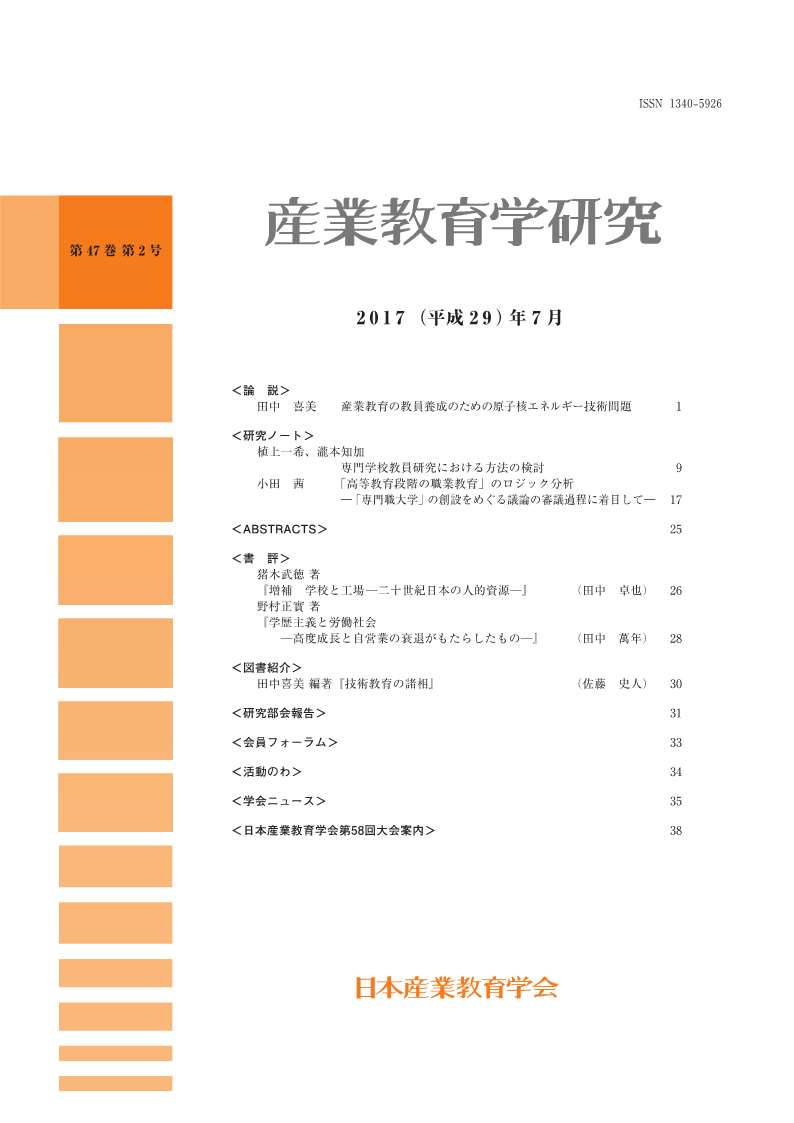The purpose of this paper is to analyze logics of the vocational education at higher education by focusing on the discussion on “new Professional Colleges”. “New Professional Colleges” will be institutionalized as institutions implementing “practical” vocation education in 2019, and the discussion was held in the Ministry of Education, Culture, Sports, Science and Technology from 2008 to 2016.In this argument, there were various logics of the vocational education at higher education. So, what kind of logics existed there? The result of analyzing shows the following: First, actors promoting University reform had logic that existing universities should implement all the more vocational education because these institutions haven’t responded their requirements. Therefore, the foundation of “new Profession Colleges” will be desirable for them. On the other hand, there was logic that existing universities can correspond to its requirements and need not to found new institutions. Second, actors promoting the Professional Training College reform had logic that improves its social status by getting not a degree of university but “the professional degree”. So, they tried to transit to the new institution. Although, as a result, new institutions will have been implemented as new universities and it will be difficult for many of them to transit there because they couldn’t meet hard standards for establishment in “new Professional Colleges”. Third, actors promoting reform general vocational education had logic that the status of the tertiary vocational education should be improved by enhancing contents of vocational education. As a result, by institutionalizing “new Professional Colleges”, social interests of vocational education will be raised, but improving in the tertiary vocational education couldn’t enough achieved.
View full abstract
